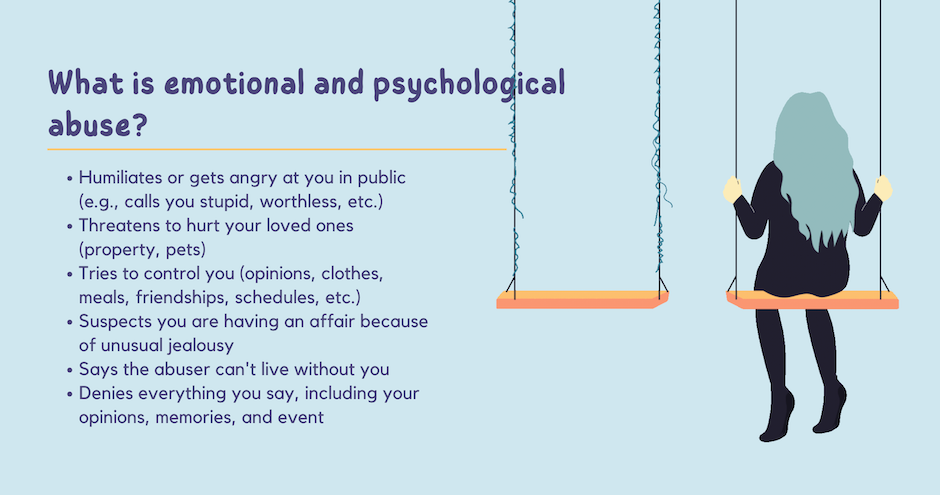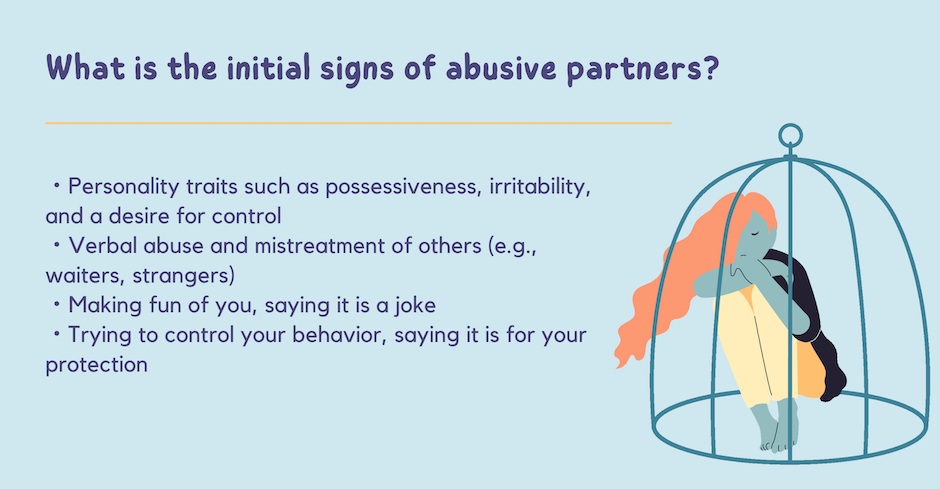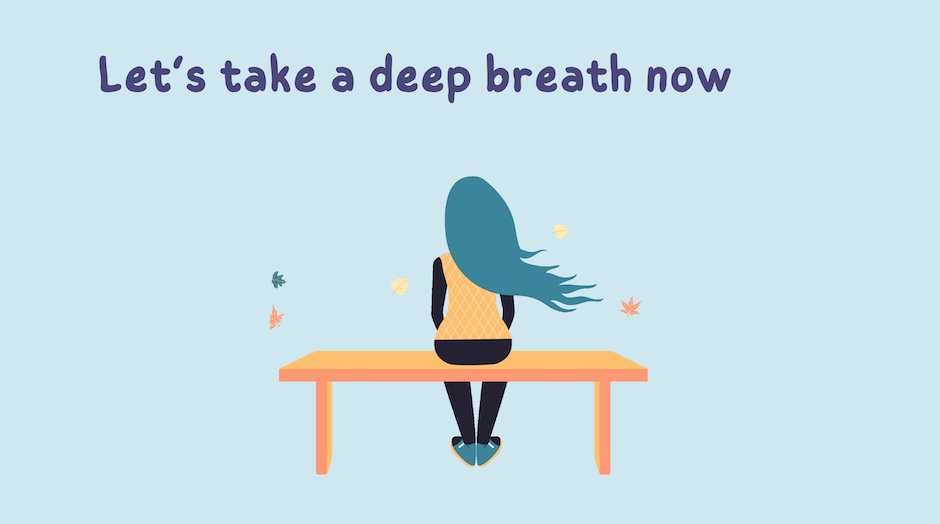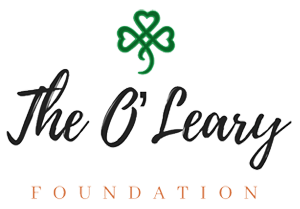National Crime Victims’ Rights Week
May is the mental health awareness month! We need to focus on our mental health and increase awareness of how important it is. Mental health is an important part of our lives, however, there is still a stigma associated with mental health and it is looked over compared to physical health. Let’s take a deep breath here, and put our eyes on the mental well-being of ourselves, our families, and our loved ones.
Emotional and psychological abuses are more common in IPV
When you hear the words “intimate partner violence” or “domestic violence,” what immediately comes to mind is physical abuse or sexual assault. In reality, however, in cases of “intimate partner violence,” emotional and psychological abuse is more common and occurs more often than physical abuse. For example, research among North Carolina women (Smith et al., 2002) found that 18.4% of women experienced at least one form of intimate partner abuse. However, of those who experienced some form of abuse, only 1.9% experienced only physical assault, and only 1.1% experienced only sexual assault. In other words, it is not an exaggeration to say that emotional and psychological abuse is more prevalent than physical abuse and occurs more frequently than physical abuse.
What is emotional and psychological abuse?
There is no significant difference between them. It is just said that psychological abuse is a narrower definition than emotional abuse and psychological abuses include manipulative control behavior to the victims. Please look at an example of emotional and psychological abuse.

How does it destroy your mental health?
Survivors often internalize their partner’s verbal abuse. Even if they initially question their partner’s words and actions, as they continue to be verbally abused on a daily basis, they come to believe what their partner is saying. They then internalize the self-denial from others, believing that wrong ideas such as “I am stupid and worthless”. Even after they realize that this was emotional and mental abuse, they blame themselves for their situation and feel anger toward themselves. According to an article by American Phychiatiric Association, approximately 20% of IPV survivors have major depressive disorder (MDD), generalized anxiety disorder (GAD), and posttraumatic stress disorder (PTSD).
What are the initial signs we can notice?
Emotional and psychological abuse is often difficult to recognize, especially in the early stages. If there is violent behavior from the beginning, it is not difficult to avoid, but in many cases, there is no particular problem initially. A partner who was kind to you at first may gradually begin to say and do things to mentally control you. Once under the abuser’s control, many victims find it difficult or impossible to get out of the situation. That is why it is important to recognize disturbing signs in the early stages.A person who inflicts emotional or physical abuse on a partner may show the following signs early in the relationship.

These are just a few examples. Emotional and psychological abuse can permeate your relationship with your partner and is difficult to recognize. If you have experienced this form of abuse, do not blame yourself. The abuse is not your fault. Even if your family or friends tell you that you are allowing yourself to be abused, the abuse is not your fault; it is the fault of the abuser. If you are being abused by a partner or family member, it is essential that you seek help and support to end the emotionally or psychologically abusive relationship.
Places Where You Can Consult
Sylvia’s Place 269-673-8700
the U.S. National Domestic Violence Hotline 1-800-799-7233
Michigan’s Domestic Violence Hotline (free and confidential resource for victims to call, text or chat) 1-866-VOICEDV
Reference
Lifespan (2024). The Importance of Mental Health Awareness Month. https://www.lifespan.org/lifespan-living/importance-mental-health-awareness-month
Women’s law.org (2021). Emotional and Psychological Abuse. https://www.womenslaw.org/about-abuse/forms-abuse/emotional-and-psychological-abuse
Mechanic MB, Weaver TL, Resick PA. Mental health consequences of intimate partner abuse: a multidimensional assessment of four different forms of abuse. Violence Against Women. 2008 Jun;14(6):634-54. doi: 10.1177/1077801208319283. PMID: 18535306; PMCID: PMC2967430. https://www.ncbi.nlm.nih.gov/pmc/articles/PMC2967430/
Mayumi Okuda Benavides, M.D., Obianuju O. Berry, M.D., M.P.H., Molly Mangus(2019). Intimate Partner Violence A Guide for Psychiatrists Treating IPVSurvivors. American Phychiatry Association. https://www.psychiatry.org/psychiatrists/diversity/education/intimate-partner-violence
Michigan’s Domestic Violence Hotline. https://www.michigan.gov/mdhhs/safety-injury-prev/publicsafety/crimevictims/assistance/domestic-violence-hotline
Strengthen Understanding and Support for Survivors
April is Sexual Assault Awareness Month, and April 21-27 was National Crime Victims’ Rights Week (NCVRW). Every year in April, we celebrate this week to increase understanding about victimization and how crime affects survivors, their families, loved ones, friends, and communities. At Sylvia’s Place, we especially focus on supporting survivors of sexual assaults and intimate partner violence.
This year’s theme was ‘Building Connected Communities.‘ Survivors of sexual violence are subjected to various forms of victim blaming by society and experience stigma as victims on a daily basis. To gradually reduce this structure of victim blaming, it is important for the community as a whole to better understand and support survivors of sexual assault.
More than half of DV incidents are not reported
In 2022, according to the National Crime Victimization Survey (NCVS), there were 951,930 intimate partner violence victimizations and 1,370,440 domestic violence victimizations, with nearly half of them not reported to police.
In Michigan alone, according to the Michigan State Police’s Incident Crime Report, 64,545 people have been victims of domestic violence, and members of LGBTQ+ communities face equal or higher risks of intimate partner violence compared to heterosexuals. Unfortunately, society remains unsafe, and those closest to us may be harmed.
How do we talk and provide support to survivors?
How should you respond if a friend, family member, or loved one who is important to you has been victimized and confides in you?
1. Acknowledgement and Empathy
It takes a lot of courage to open up about your experience of sexual victimization or intimate violence. The first thing to do is to thank them for sharing their experience. Then, it is important to show empathy by “acknowledging” their experience, not denying it, and showing empathy by saying,
“Thank you for sharing your painful experience with me. I’m sorry this happened to you. I’m sorry it had come to this.”
2. Providing Support
Communicating that you are always willing to listen can provide victims with a sense of security. The mere act of listening can be a great support, as it reminds victims that when they remember painful experiences, they have someone close at hand whom they can talk to. You can say,
” if you ever need to talk, I’m always here to listen and I care about you. Never feel alone.”
3. Believe the Victim’s Story
Eight out of ten perpetrators of sexual assault are people known to the victim or someone the victim knows, and 33% of sexual assaults are committed by a current or past intimate partner. Therefore, victims are constantly exposed to their own inner voice and public accusations that they may have been wronged. That is why it is so important to acknowledge the victim’s story and believe them.
“I believe you. You are not at fault, and what happened to you is absolutely unforgivable.”
Not being sure what to say to them is what happens when you don’t want to hurt your loved ones any more than they already are. Even if you are not able to say the perfect words, do not blame yourself. Often, family and friends who support the victim can also be under a lot of emotional strain during the support process. It is important that you offer as much support as you can and guide the victim to seek professional help.
Places Where You Can Consult
Sylvia’s Place 269-673-8700
Michigan Advocacy Program (734) 665-6181
Statewide Domestic Violence Hotline 1-866-864-2338
Michigan Domestic Violence Hotline 1-866-864-2338
the National Sexual Assault Hotline 1-800-656-HOPE
Outcenter in Michgan (Free counseling for supporting transgender, gender fluid, or gendernon-conforming folx) 1-269-815-0185
Reference
Victim Support Services (2024).What is National Crime Victims’ Rights Week. https://victimsupportservices.org/events/national-crime-victims-rights-week/
Bureau of Justice Statistics (2023), Criminal Victimization, 2022, NCJ 307089, BJS. https://bjs.ojp.gov/library/publications/criminal-victimization-2022
Ken Coleman (2024). Nessel says Michigan remains committed to supporting sexual violence survivors. Michigan Advance. https://michiganadvance.com/2024/03/25/nessel-says-michigan-remains-committed-to-supporting-sexual-violence-survivors/
RAINN (2024). Tips for Talking with Survivors of Sexual Assault. https://www.rainn.org/articles/tips-talking-survivors-sexual-assault#:~:text=Remind%20the%20survivor%2C%20maybe%20even,they%20are%20comfortable%20sharing%20it.
RAINN (2024).Perpetrators of Sexual Violence: Statistics. https://www.rainn.org/statistics/perpetrators-sexual-violence
Sylvia’s Blog
- Wine Tasting 2025 May 19, 2025
- Comorbid Dangers: Financial Abuse November 4, 2024
- Comorbid Dangers: Domestic Violence & Animal Abuse September 16, 2024
HOURS
Office:
24/7
CONTACT
Administration Office/
Non Residential Services:
269.673.5742
24 Hour Crisis Line:
269.673.8700
PO Box 13
650 Grand St
Allegan, MI 49010
Email:
support@sylviasplace.com






